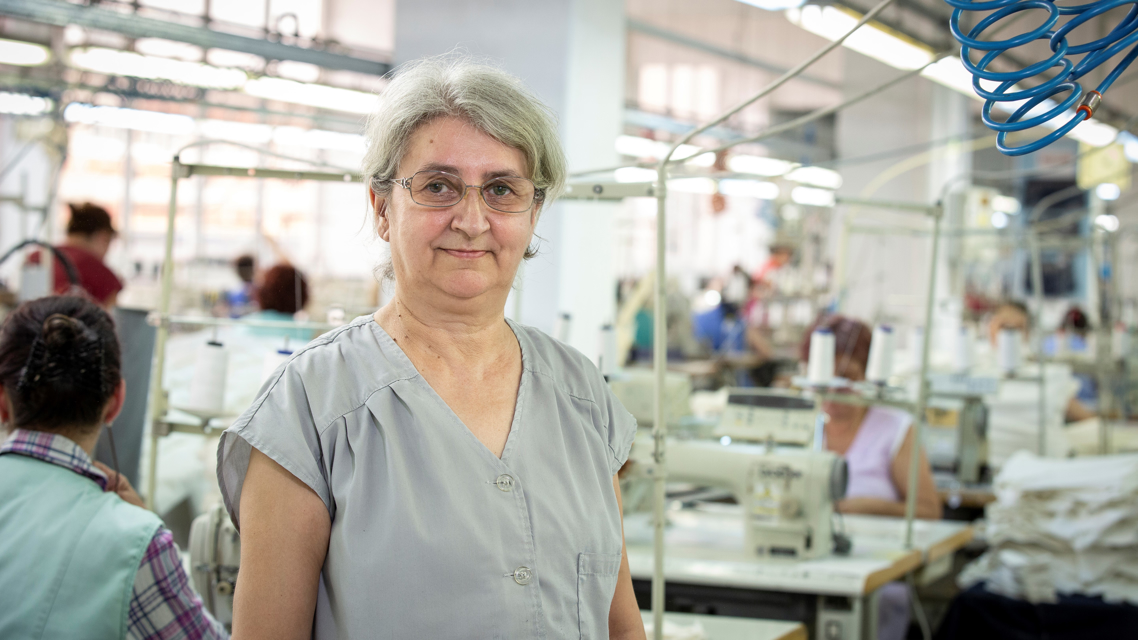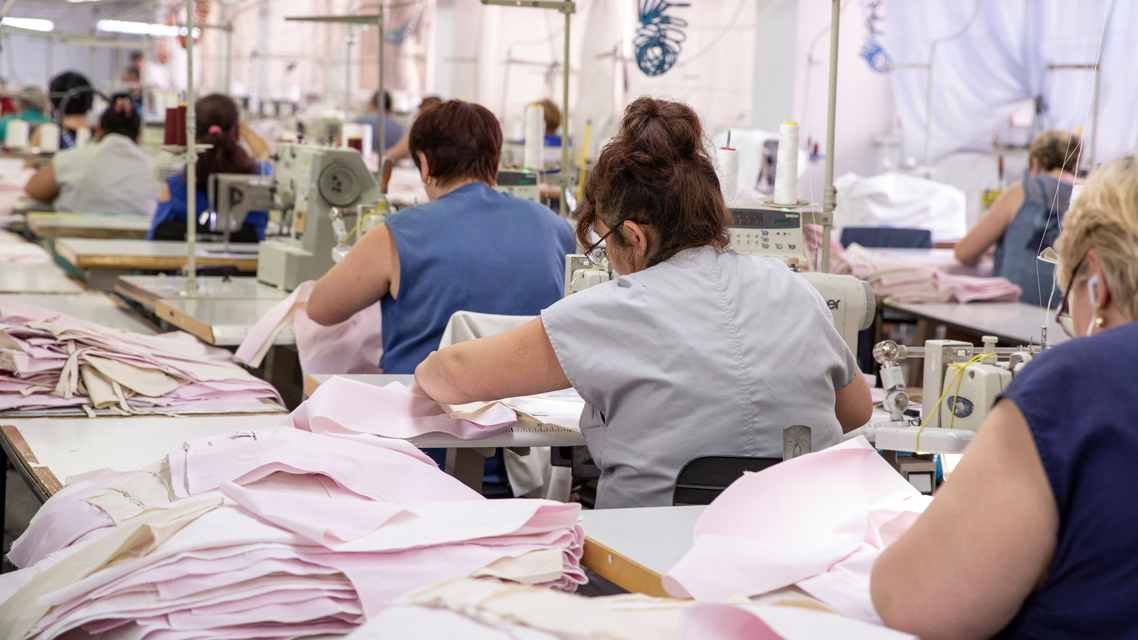We call on the European Commission to come forward with an EU Textiles Strategy which leads to job creation, including in areas such as textiles recycling and quality control. These jobs should be quality jobs, created here in Europe.
Today, trade unions from across Europe representing workers in the textiles, clothing, leather and footwear (TCLF) industries came together to call for an ambitious EU sectoral strategy to safeguard the long term future for the industry and its workers, including the possibility to re-shore work to Europe and create more jobs.
The European TCLF sectors were heavily impacted by COVID-19 which saw a drop in clothing retail sales by up to 60% in some countries. Many workers in the sector have been unable to work full time, with trade unions across Europe fighting to safeguard jobs in the sector. However, the COVID-19 pandemic also saw an increase in some parts of the industry. The production of much needed personal protective equipment (PPE), specifically masks and gowns, increased substantially with work re-shored to Europe in order to guarantee access to these strategic supply chains.
Trade unions now call on policy makers to support the European TCLF sector, which remains a key player in the COVID-19 response, so that it can play its part in meeting Europe's climate ambitions and the challenges laid out in the European Green Deal and the Circular Economy Action Plan. In particular, European trade unions eagerly await the publication of the European Commission’s EU Textile Strategy which is hoped to set out concrete measures to ensure a sustainable future for the TCLF sector and its workers.
Jude Kirton Darling, Deputy General Secretary for industriAll Europe, said:
‘’European workers in the TCLF sector have stepped up to the challenges caused by the COVID-19 pandemic by producing critical PPE. The next challenge facing the sector is to ensure its sustainability in the long run and workers are ready to play a key role by producing high-quality, longer lasting products using new green and digital technologies."
‘’This strategic change in production needs to have a coordinated European approach and we insist that social dialogue is respected at every stage of the transformation. Workers need to be informed and consulted on workforce planning and companies should invest in their factories and their employees. Upskilling and reskilling will be essential."
‘’We call on the European Commission to come forward with an EU Textiles Strategy which leads to job creation, including in areas such as textiles recycling and quality control. These jobs should be quality jobs, created here in Europe. The strategy should be ambitious, and that means support will be needed at regional, national and European level to update workplaces to make them not only greener but also better environments for their workers.’’
Contact: Andrea Husen-Bradley (press and communication), Elspeth Hathaway (policy adviser)

